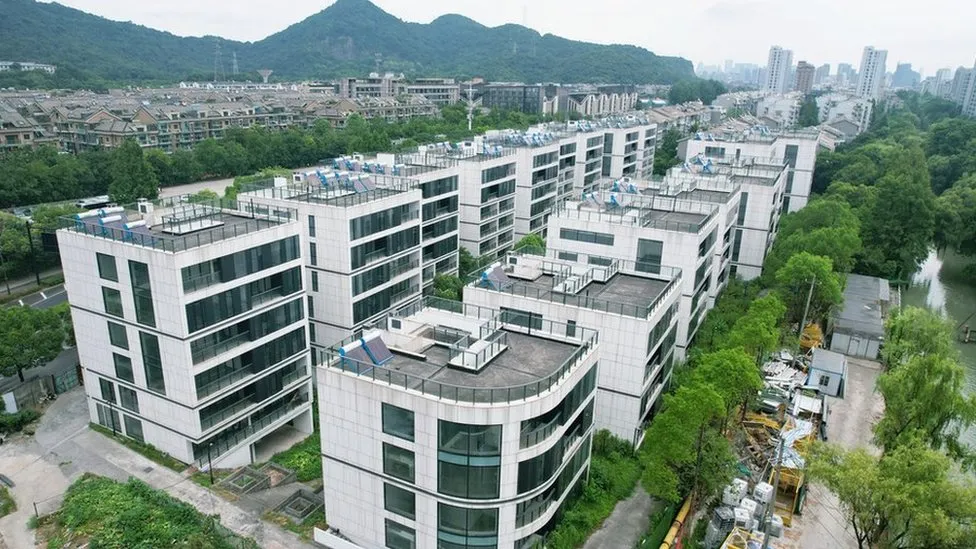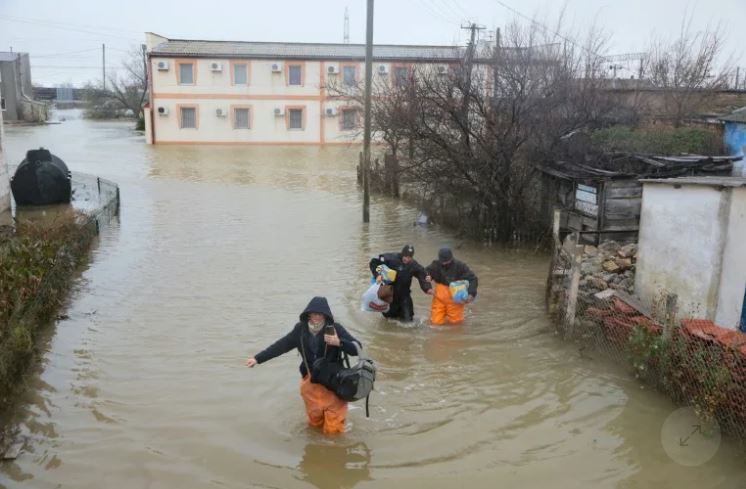Zhongzhi Enterprise Group: China investigates major shadow bank for 'crimes'
By KnowledgeVeto Monday, November 27, 2023 01:50

© Provided Images By GettyImages
Chinese authorities have opened an inquiry into one of the country's largest shadow banks, which has given billions of dollars to real estate companies.
Zhongzhi Enterprise Group (ZEG) has an asset management arm that purportedly handled more than a trillion yuan ($139 billion; £110 billion) at its peak.
In a statement issued over the weekend, authorities claimed they are looking into "suspected illegal crimes" committed by the company. This comes just days after news that ZEG filed bankruptcy.
The troubled company reportedly informed investors in a letter last week that its obligations - up to $64 billion - had outstripped its assets, which are now estimated to be around $38 billion.
Authorities have said they have taken "criminal coercive measures" against "many suspects," although it is unknown who they are or what role they play in the firm. Xie Zhikun, the company's founder, died of a heart attack in 2021.
ZEG is a key player in China's shadow banking business, which refers to a network of lenders, brokers, and other credit intermediaries that operate outside of standard regulated banking. Unregulated shadow banking is not subject to the same risk, liquidity, and capital constraints as ordinary banks.
China's shadow banking business is estimated to be worth $3 trillion. It frequently gives a financial lifeline to the country's real estate sector. A severe credit constraint has affected the once-booming industry, with some of the largest enterprises now on the verge of financial disaster.
"China has been chasing this property bubble for several decades - and in order to create this bubble, or to fuel China's growth, they needed capital." As a result, they began to receive a large amount of money from individual investors providing extremely high returns. And it worked for a while because property values were rising, so it's a win-win situation for everyone," says Andrew Collier, an Orient Capital Research shadow banking expert.
In China's economy, informal lending has always existed, but shadow banking grew up in the aftermath of the global financial crisis in 2008, when credit was short.
Given China's slowing economy and the real estate sector's turmoil, Mr Collier believes the problems at ZEG are just the beginning of a larger issue: "This is going to spread further into other forms of shadow banks and potentially into the actual real brick-and-mortar banks."
Property developers are currently owed money by Chinese banks representing up to 30% of the banks' assets.
"That is going to take a long time to unwind," Mr Collier predicts.
Following the bankruptcy of property developer Evergrande and, more recently, Country Garden's financial troubles, the latest revelations at ZEG have aroused fears of future turbulence in the world's second-largest economy.
The property sector in China accounts for one-third of total economic activity. This comprises housing, rental and brokerage services, as well as building materials and enterprises that produce things for apartments.
According to the most recent data, China's economy expanded by 4.9% between July and September. This is slower than the previous quarter's growth of 6.3%.













